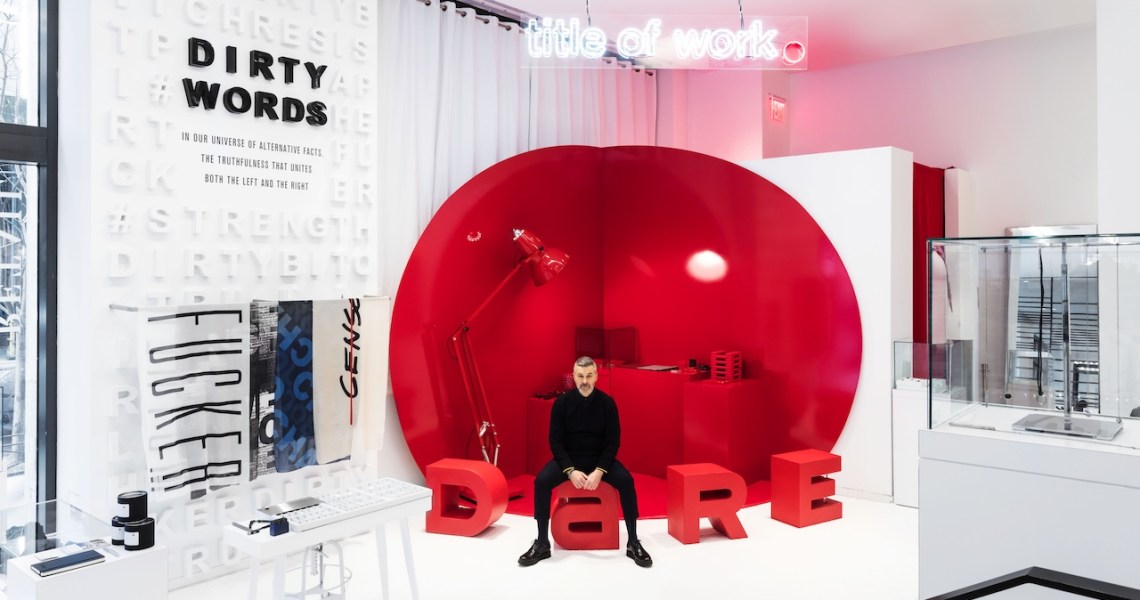Like many brand founders, designer Jonathan Meizler, of luxury accessories brand Title of Work, saw a precipitous dropoff in sales last March, particularly in wholesale channels. But within a few months, the direct-to-consumer side of the business flared back to life, shifting the brand’s relationship with its wholesale partners.
In the months since, Meizler’s co-founder, Rony Zeidan, created a new backend technology to manage the wholesale partnerships. Zeidan describes the result as a reverse marketplace. Title of Work’s new tech lets it supply its retail partners with a single line of code to integrate with their API. When a customer orders a Title of Work piece through a retailer’s online store, the order is automatically routed to Title of Work, which can then produce, package and ship the order without any input from the retailer.
The platform can manage the brand’s dropship commitments to many different retailers, and it allows any retailer to set up a dropship relationship with Title of Work without having an owned system in place to manage it. While larger retailers like Nordstrom or Bergdorf Goodman already have dropship systems in place, smaller specialty retailers don’t often have the same resources.
Zeidan and Meizler said they’re in discussions with multiple current retail partners about integrating the system. One is set to start using it in the next three months, though the founders declined to name the retailer. Within the next six months, Title of Work also plans to lease a version of the system to other brands.
The development of the system and the interest it’s seen from retailers speaks to the changing relationship between brand and wholesaler over the last year. Alternative models like dropshipping and concessions are becoming more popular, and traditional wholesale models with big inventory buys diminishing.
“The wholesale business has changed,” Zeidan said. “It was changing already, but it got obliterated in 2020, with stores closing and orders canceled. Luckily, none of our retailers canceled, but many others did. The large retailers are in a place now where they’re stuck. They want to buy into brands, but they need to minimize risk so they don’t want to buy the inventory. Dropshipping puts the onus of inventory on the brand. We wanted to make something that would make it so both parties have as little inventory risk as possible.”
Title of Work sells through retailers like Bergdorf Goodman and Neiman Marcus. In the past year, the business has shifted heavily towards DTC. In 2019, wholesale sales were 70% of the business, but DTC sales now make up 60%.
Ad position: web_incontent_pos1
The conversations with those retail partners are now different, according to Meizler. Retailers used to place large orders far in advance, sometimes making orders in January to be fulfilled in July. Meizler said that mentality has shifted, with many retail partners now wanting shorter commitments and smaller, more frequent inventory orders. For example, after viewing Title of Work’s new face mask category, launched in May, a buyer for Harrods had it on the store’s shelves less than four weeks later. Those face masks have come to make up 12% of the business, despite being less than a year old.
“When we started doing product drops on our DTC channel last year, it had an immediate impact on the retailers,” Zeidan said. “We’d drop an item, and the next day, the retailers — especially specialty shops — would ask if they could order it. The retailers have to be more flexible and not rely on these large, months-in-advance orders.”
Meizler said he’s seen retailer buyers’ budgets decrease over the last year, which makes the brand’s new dropship tech more appealing. It allows for small orders to quickly be placed on a regular bases, and only when a customer orders the product. Neither the brand nor the retailer bear the risk of being stuck with unsold inventory.
It’s worth noting that this option works for Title of Work because its jewelry and accessories can be assembled within 24 hours and shipped within 48 hours of the order. Meizler said made-to-order dropshipping could still work for a brand making a more complex product, like ready-to-wear, as long as the customer is aware that shipping will likely take longer than the average retail delivery time of three days.
“The open-to-buy budget has been reduced at a lot of retailers.” Meizler said. “I wouldn’t necessarily say that the balance of power has shifted between the brand and the retailer, but the relationship is certainly changing. When you have dropshipping and the retailer doesn’t have the inventory burden, it changes the margins. These are uncharted waters, and the brands and retailers are both navigating them to the best of their abilities.”




